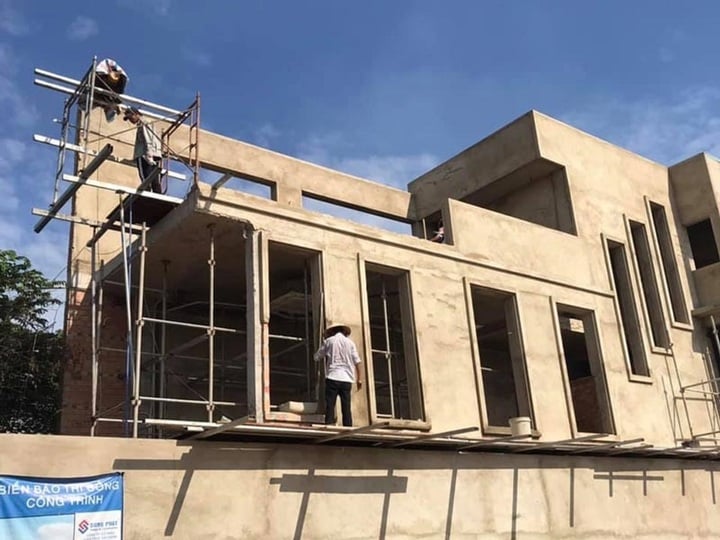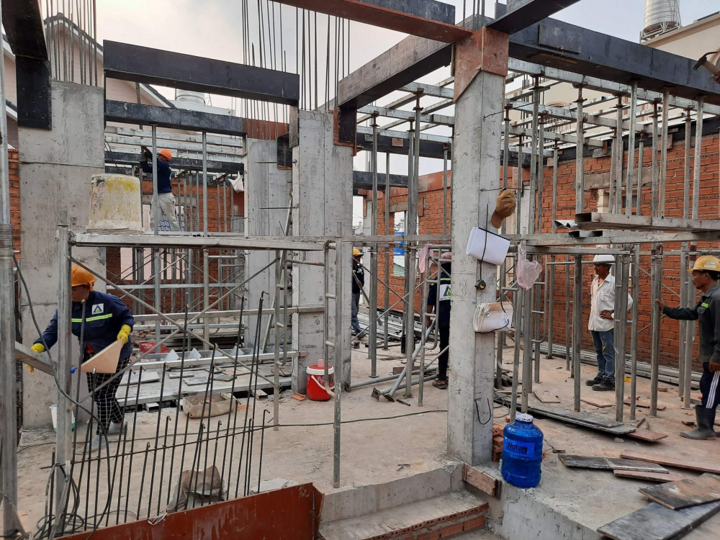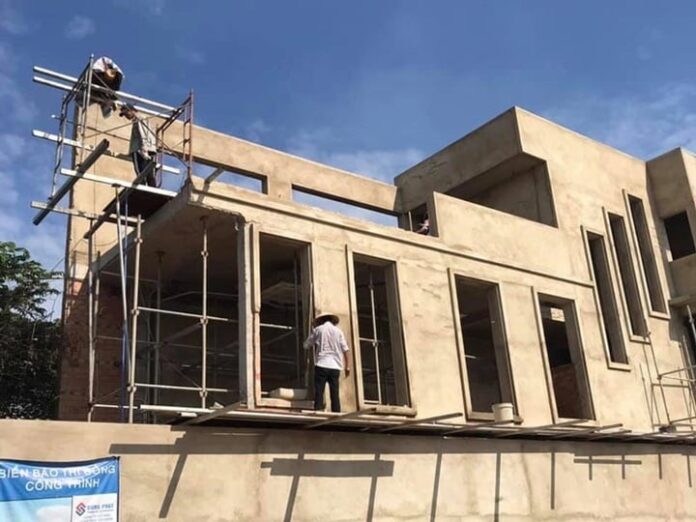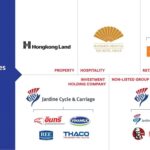Streamlining the Construction Permit Process: Experts Weigh In on Vietnam’s New Directive
In a recent government meeting, Prime Minister Pham Minh Chinh directed a decisive cutback on unnecessary procedures, including construction permits. Many experts have expressed their agreement with this decision.
Navigating the Bureaucratic Maze
Architect Tran Ngoc Chinh, Chairman of the Vietnam Urban Planning and Development Association and former Deputy Minister of Construction, supports the idea of eliminating construction permits. He argues that with detailed planning already in place, seeking additional permission to build is a waste of time and undermines the autonomy of landowners.
In reality, the detailed 1/500 planning already stipulates building ratios, construction density, and setback requirements from the sidewalk. Some areas even specify the presence and type of basements.
Therefore, in areas with detailed 1/500 planning, citizens should be exempt from seeking construction permits. However, they must still inform local authorities, who are responsible for overseeing compliance with the regulations.

Eliminating construction permits will save citizens time and money.
Sharing this sentiment is Tong Van Nga, Vice Chairman of the Vietnam Construction Association. He points out the numerous shortcomings of the current construction permit system, including complex procedures that waste time and money.
Meanwhile, construction order in many localities remains chaotic, with widespread violations and a lack of stringent enforcement.
” The Prime Minister’s directive to eliminate unnecessary procedures, including construction permits, is justified. To achieve this, localities must have comprehensive planning for each area, with detailed regulations on aspects such as maximum height, distance from the house to the sidewalk, paint colors, and design “, Mr. Nga emphasized.
A Burdensome Process for Businesses
From a business perspective, Le Huu Nghia, CEO of Le Thanh Company, highlights that the processes of establishing and approving the basic design, technical design evaluation, and construction permit issuance essentially repeat the content of the approved 1/500 planning.
Following the approval of the 1/500 planning, project owners must undergo three redundant procedures with similar content. This waiting period can take up to six months, incurring unnecessary costs and causing businesses to miss out on valuable opportunities.
Experts and businesses agree that the construction permit procedure for investment construction projects is superfluous and unnecessary. Regulatory bodies only need to refer to the 1/500 planning of each project for effective monitoring and supervision.
Currently, individuals constructing a house must hire a design unit, prepare documents, seek confirmation of planning, pay fees, and await evaluation and permit issuance from relevant authorities. The total cost of obtaining a construction permit can reach tens of millions of dong, excluding other unofficial expenses to expedite the process.
These shortcomings have led to a reliance on “permit brokers” to expedite the process, sometimes even resulting in a “build first, permit later” approach, creating a vicious cycle of red tape and corruption.
The Need for Comprehensive 1/500 Planning

Comprehensive 1/500 planning is essential to eliminating construction permits. (Illustrative image)
Le Hoang Chau, Chairman of HoREA, also supports the initiative to abolish construction permits for individual houses. In developed countries, he notes, the state does not issue construction permits. Citizens can access the planning information for their plot of land, which outlines building parameters such as the number of stories, density, setbacks, urban design, and facade colors.
“As Vietnam transitions towards a smart government, we should embrace this approach “, Mr. Chau added.
However, he emphasizes that to implement this effectively, the Ministry of Construction needs to establish clear criteria and standards. Most Vietnamese cities lack comprehensive 1/500 planning and approved urban designs for their roads and streets.
In 2018, Ho Chi Minh City piloted a program to waive construction permits for individual houses in Tan Quy ward, District 7. However, the condition for this waiver was the availability of 1/500 planning for the ward, which was lacking at the time.
Therefore, to eliminate the construction permit process, it is imperative to first establish comprehensive 1/500 planning and corresponding urban designs.
Mr. Chau also points out that only a few roads in Vietnamese cities have approved 1/500 planning and urban designs, such as the Nhat Tan – Noi Bai route in Hanoi.
While developing 1/500 planning for all streets in a city can be costly due to the diverse shapes and sizes of land plots, it is a necessary step to streamline administrative procedures and eliminate construction permits.
“To achieve this goal, we should promote the socialization of planning and prioritize areas with high construction demand for detailed planning“, Mr. Chau explained.
Pham Viet Thuan, Director of the Institute of Economics, Resources, and Environment, agrees that eliminating construction permits is feasible, as stipulated in the previous Law on Construction for areas with approved 1/500 planning. However, inconsistencies remain in the implementation process.
To abolish construction permits, localities must swiftly develop comprehensive 1/500 planning or establish architectural management regulations, initially focusing on urban areas.
Many major cities worldwide have abandoned the pre-control mechanism of construction permits for small-scale projects, adopting a post-control model instead. Citizens simply register their construction plans online, and the system automatically cross-references the data with the planning information. If there are no discrepancies, citizens are free to build.
“This approach saves time and money for citizens, and authorities can easily monitor and inspect projects through digitized data and community feedback“, Mr. Thuan stated.
Home Show Vietnam 2025: Gateway to Export Markets for Businesses
Home Show Vietnam 2025 is a premier event for the houseware and gift industry, offering unparalleled global networking opportunities. The event empowers businesses to expand their exports and embrace new technologies, revolutionizing their product and service offerings.
Hong Kong Conglomerate Pours Massive Investment into THACO: Holds Over $1 Billion in REE and Vinamilk Stocks; Historical Investor in Chinese Railways Over a Century Ago
Jardine Matheson, a prominent investor, has had a long-standing relationship with THACO since 2008, with a significant boost in investment in 2019, valuing the company at over $9 billion. This strategic partnership was further strengthened in late 2023, with Jardine Matheson purchasing nearly VND 9,000 billion in THACO bonds, demonstrating a strong vote of confidence in the company’s future prospects.
The Coastal Roads of Binh Dinh: A Picturesque Journey
Bình Định offers more than just pristine beaches with its stunning coastline and idyllic blue seas. The province boasts a plethora of breathtaking seaside routes, making it a haven for adventurous souls seeking unique experiences and off-the-beaten-path discoveries.





















